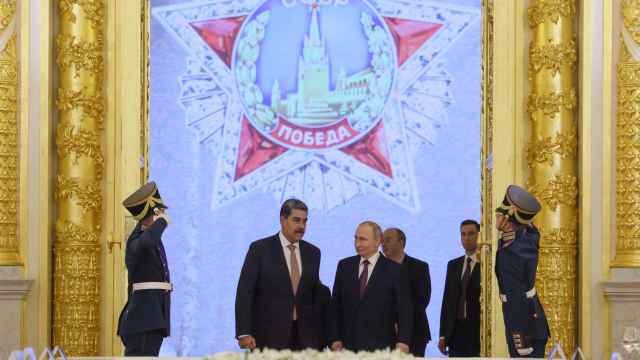Исключительность: exceptionalism
On Sept. 11, when I opened up my virtual U.S. newspapers expecting to find 9/11 anniversary coverage, I found a letter from Vladimir Putin to the American people instead.
Really? On 9/11? Which "K" had that bright idea — the Kremlin or the Ketchum public relations firm?
Anyway, as is my wont, I found the Russian version of the letter and began to compare the two texts. Despite Ketchum's statement that Putin wrote the letter, I don't know how the whole process of translating, editing and trimming went with the PR agency and The New York Times. That is, I have no idea what motivated the differences between the Russian and English texts. But differences there are.
A few of the differences are significant. One is the portrayal of the history of the UN Security Council veto. The English reads that the veto was enshrined in the UN charter "with America's consent." The Russian reads по настоянию США (on the insistence of the U.S.). So which is it?
In English, Putin welcomes "the president's interest in continuing the dialogue. … We must work together to keep this hope alive." In Russian, there is an additional sentence: Мы давно призывали к совместной работе (We have been urging that we work together for a long time).
There is a slight, but important, difference in the characterization of the conflict. In English, the internal conflict is "fueled by foreign weapons supplied to the opposition." In Russian, those weapons were supplied с самого начала (from the very start).
And then, a passage about the danger of mercenaries moving on to other countries ends in English with "This threatens us all." In Russian, this phrase is followed by another sentence that is missing from the English text: Ужасная трагедия в ходе Бостонского марафона лишний раз подтверждает это (The terrible tragedy during the Boston marathon confirms this yet once again).
Russia's relationship with the UN is also portrayed variously. "We need to use the United Nations Security Council and believe that preserving law and order in today's complex and turbulent world … " becomes: Постоянно доказываем необходимость полного задействования возможностей Совета Безопасности ООН. Исходили и исходим из того, что в современном сложном и турбулентном мире ... (We constantly insist that it is essential to fully use the resources of the UN Security Council. In the past and now we have proceeded from the belief that in today's complex and turbulent world … )
And the topic of American exceptionalism (американская исключительность) was introduced differently in the two texts. In English, it's laconic: "And I would rather disagree with a case he made on American exceptionalism." In Russian, the comments are given center stage: "И позволю себе пополемизировать по вопросу, который считаю абсолютно ключевым и фундаментальным." (And I'll permit myself to polemicize a bit on an issue I consider absolutely crucial and fundamental.)
In English, potential U.S. action is described as "a strike" or, in later references, "it." In Russian, it's nearly always spelled out, sometimes with emphasis on past actions: ракетно-бомбовый удар (missile and bombing raid); имевшие место силовые акции (military actions that have already taken place); and подобные силовые действия (similar military actions).
As a result of these many little tweaks, in the Russian text Russia is presented in a much better light and the U.S. in a worse light. And the Russian text makes more questionable assertions. Too bad English speakers didn't get the Russian version. It would have been interesting to see their reaction.
Michele A. Berdy, a Moscow-based translator and interpreter, is author of "The Russian Word's Worth" (Glas), a collection of her columns.
A Message from The Moscow Times:
Dear readers,
We are facing unprecedented challenges. Russia's Prosecutor General's Office has designated The Moscow Times as an "undesirable" organization, criminalizing our work and putting our staff at risk of prosecution. This follows our earlier unjust labeling as a "foreign agent."
These actions are direct attempts to silence independent journalism in Russia. The authorities claim our work "discredits the decisions of the Russian leadership." We see things differently: we strive to provide accurate, unbiased reporting on Russia.
We, the journalists of The Moscow Times, refuse to be silenced. But to continue our work, we need your help.
Your support, no matter how small, makes a world of difference. If you can, please support us monthly starting from just $2. It's quick to set up, and every contribution makes a significant impact.
By supporting The Moscow Times, you're defending open, independent journalism in the face of repression. Thank you for standing with us.
Remind me later.







